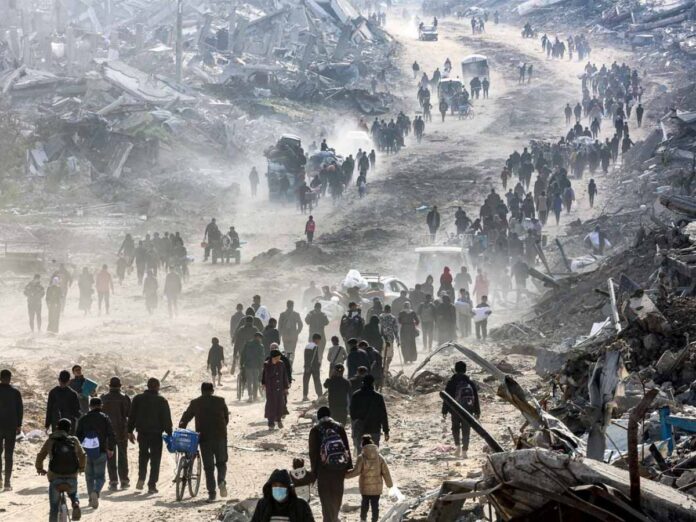Hamas’s failure to release civilian hostage Arbel Yehud prompts Israel to halt northern Gaza return plan, citing agreement violations.
Tel Aviv [Israel], January 26: Israel has announced a delay in facilitating the return of displaced Palestinians to northern Gaza after Hamas failed to uphold terms of a ceasefire agreement, Prime Minister Benjamin Netanyahu confirmed late Saturday. The move followed the release of four female Israeli soldiers held hostage by Hamas for 477 days but excluded civilian hostage Arbel Yehud, whose release was stipulated in the deal.
The freed soldiers—Karina Ariev, Daniella Gilboa, Naama Levy, and Liri Albag—returned under an agreement prioritizing the release of all living civilian women before soldiers. Yehud, abducted from Kibbutz Nir Oz on October 7, was conspicuously absent from the release. Hamas has provided no official explanation for the omission, though mediators, including Qatar, characterized the exchange as partially successful.
Israel Accuses Hamas of Breach
In a statement, IDF Spokesperson Rear Adm. Daniel Hagari accused Hamas of violating the ceasefire terms. “Hamas did not abide by its obligation in the deal to free civilian women first,” he said. The IDF has postponed plans to withdraw from the Netzarim Corridor, a critical route dividing Gaza, until further commitments are fulfilled by Hamas.
Lt.-Col. Avichay Adraee, the IDF’s Arabic spokesperson, reiterated that current restrictions in Gaza will remain. “The instructions will remain in effect until new directives are issued following the next phase of the agreement,” he tweeted.
Hamas Promises Delayed Release
Hamas has reportedly assured mediators that Yehud is alive and will be released next Saturday, though Israel has demanded concrete proof of her status. Meanwhile, Netanyahu stated that no Gazan repatriation or IDF withdrawal would proceed until Hamas fulfills its commitments.
Families and Criticism
Yehud’s family expressed both relief and anguish, stating, “Our hearts filled with joy at the return of Karina, Daniella, Liri, and Naama. We await the moment we can hug Arbel.”
Critics of the phased ceasefire process argue it leaves many hostages in indefinite captivity while undermining Israel’s strategic war position.
Background
Hamas’s October 7 attacks left at least 1,200 people dead and 252 individuals, including Israelis and foreign nationals, taken hostage. To date, more than 30 hostages have been declared dead. Under the ceasefire’s first phase, 33 hostages are to be released over six weeks in exchange for hundreds of Palestinian prisoners held in Israel.
The next round of negotiations, set for the 16th day of the ceasefire, will determine the fate of the remaining hostages.


